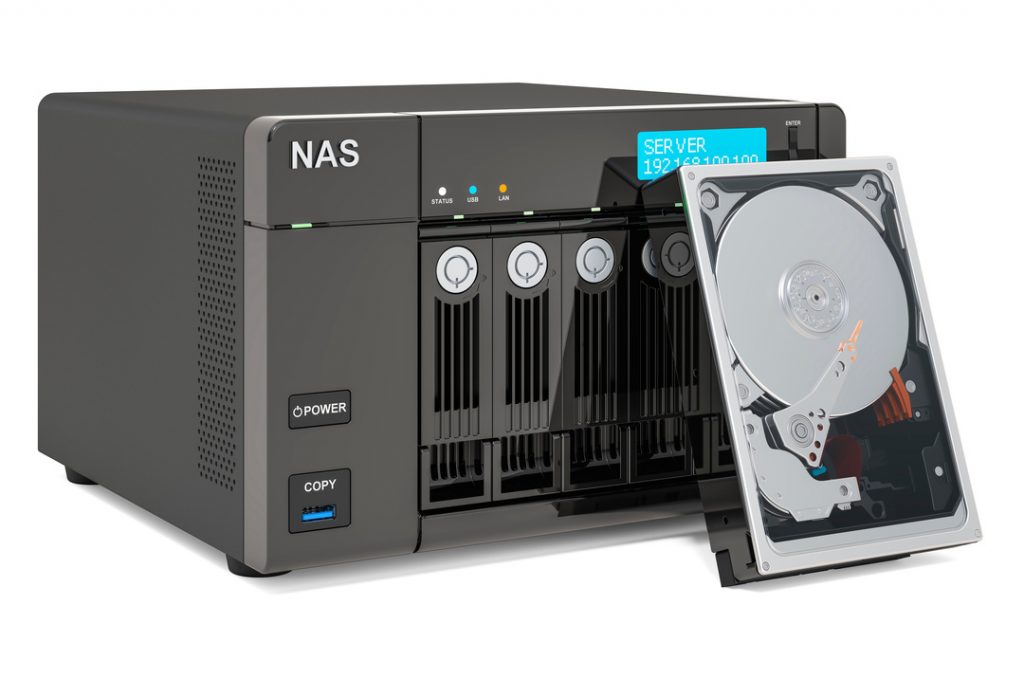7 Reasons Your Business Needs A NAS Backup Solution
Technology is a common feature in contemporary society and is here to stay. Businesses, in particular, have heavily integrated technology into their systems and procedures. The reason for this is that technology enables organizations to operate more efficiently.
However, with increased technological use comes an increase in the amount of data that travels on the internet of things (IoT). Many of today’s technologies, software, and systems are data-driven and in most cases, data analytics is the source of a company’s competitive edge. As a result, data is a valuable asset that most firms cannot afford to lose. That’s why data backup solutions are essential.
Large corporations will require a lot of storage space since they possess bouts of data. Because physical stores may not suffice, businesses may consider investing in cloud storage options. While it is possible to have physical data stores or the cloud, both aren’t as accessible and secure as network-attached storage (NAS).
Simply put, NAS is storage that’s connected to a network. It combines cloud storage features and local storage solutions like hard drives. Therefore, it allows businesses to enjoy the benefits of both physical and cloud storage. That said, here are some reasons why your business needs NAS cloud backup.
1. Private Cloud Access
Cloud storage is highly convenient. That’s why a lot of individuals and businesses use cloud storage. However, most cloud storage solutions are offered by third parties. It’s like renting out cloud storage on a third-party platform. But, if you’re a business that handles sensitive information, it’s logical to be concerned about who may access your files in the cloud.
On the contrary, NAS solutions allow you to have your private cloud. This is because most NAS solutions have settings that allow you to configure for remote access. This means you’ll be able to access your documents from wherever you are without worrying whether someone could snoop in since you’re not handing over your data to a host company. This makes NAS a safer backup solution option.
2. Automatic Data Backup
Many businesses nowadays use data to keep their businesses competitive. So, they can’t afford to lose data, especially that which is sensitive, since cyberattacks are on the rise. Nonetheless, remember that data backups matter because while technology is mostly reliable, it’s not infallible. For example, if your system fails to update correctly or if you encounter a cybersecurity attack, it could result in the loss of all your data. That’s why automatic data backup is essential.

Thankfully, NAS solutions allow you to set up automatic backups which mirror the changes you make through your local computer. That means the NAS system immediately updates the file or folder as soon as you make a change. You could also configure it to use a Redundancy Array of Independent Disks (RAID) wherein two or more hard drives are connected to add redundancy so that data is saved on each drive concurrently. So, if one drive fails, the others act as a fail-safe.
3. Easy To Set Up
This is one of the most significant benefits of NAS. They are easy to set up and configure, unlike other storage solutions. You won’t have to go through several hours of complicated setup instructions with NAS. Plus, most NAS manufacturers nowadays are creating mobile applications for the systems, which will improve accessibility as well. Moreover, most NAS systems have a web-based interface that is very easy to access.
4. Centralized Backups
NAS allows all your data backup and storage requirements to be centralized. That means it’ll be easier for teams to collaborate through NAS solutions. Decentralized storage isn’t the most effective because businesses have various interdependent functions. One function relies on the output of a different function to do its job.
Suppose you have a marketing department. If the marketing team has a campaign proposal, they’ll likely have to go through the finance department to get approval. But, having a NAS in place can streamline this process since finance and marketing can communicate quickly. Since all the data is stored in NAS, the finance team can process any request much faster. That’s why centralized data backup and storage are much more elite.
5. Compact
As opposed to physical forms of storage, NAS storage won’t take up much office space because it’s compact. They do come in different shapes and sizes. However, they don’t take up much space regardless. Therefore, they’re easily transferrable just in case you need to move the NAS system elsewhere because you’re moving office.
6. Data Security
The threat of cyberattacks is genuine. Every business that uses IoT-enabled devices exposed itself to the threat of cyberattacks. It’s an unfortunate reality, but businesses should consider it because they can’t afford to lose sensitive data. If a company loses valuable customer information, for example, it could find itself in deep trouble. That’s why data security is essential.
Most NAS systems are designed with data security in mind because most come with encryptions and several permissions, which limit the people who have access to the system. That means only a few people could be given full access to the system while others have limited access. By limiting access, you also limit the potential vulnerabilities in your system or ecosystem of devices.
7. Gets Rid Of The Need For Physical Storage
Since NAS is essentially always connected online, you won’t need to switch between various physical storage options like CDs or flash disks.
Removable storage isn’t as reliable because it’s cumbersome to handle, and it’s much easier to destroy or lose most physical storage devices. Therefore, they’re not suitable mediums to back up your data. Imagine having to back up all your information manually every time. It’s not ideal. But NAS makes things much simpler by removing the need for removable media stores.
Conclusion
Since businesses have adopted technology in their operations, it’s become increasingly important for them to use online storage solutions. But NAS is a convenient and cost-effective backup storage solution that can suit any business. It’s easy to set up and manage, so you won’t need many IT experts to install or manage this.
There are plenty of NAS solutions on the market, so you may have to research to find the perfect one for your business. Ensure to find one with your required features, too, since every business is structured differently and will have different data storage needs.







